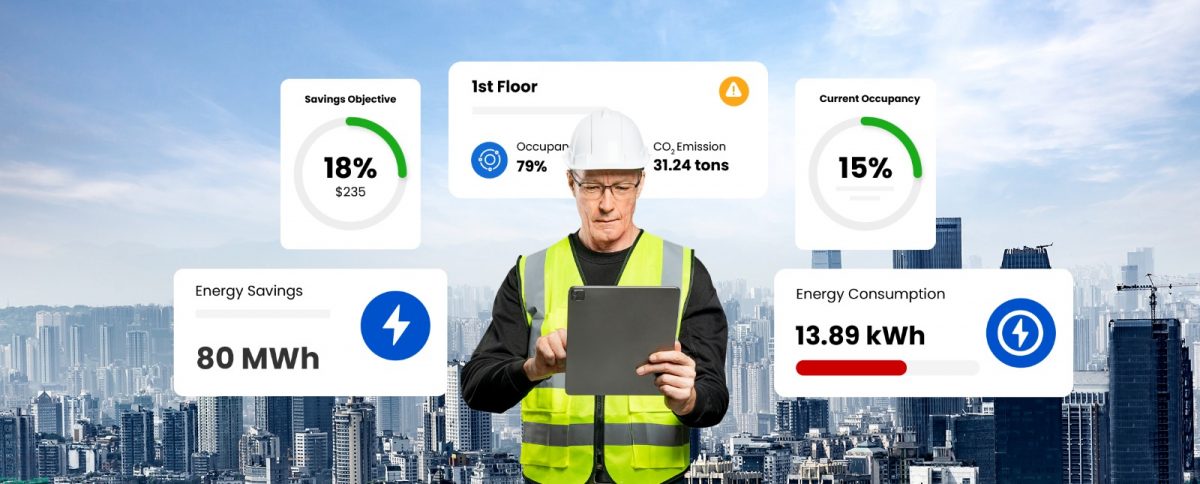Achieving efficiency in energy consumption is a complex undertaking with far-reaching benefits. Rising energy costs and the growing focus on sustainability have made energy optimization a top priority across industries. Artificial Intelligence (AI) and data analytics are transforming how we manage energy, offering intelligent solutions that empower businesses and consumers to reduce consumption, lower costs, and minimize their environmental impact. This blog explores the crucial role of AI and analytics in smart energy management.
How AI Transforms Energy Management
AI’s ability to process massive datasets, identify patterns, and make predictions makes it an invaluable tool for energy optimization. Here’s how it drives smart energy solutions:
- Precision forecasting: AI models analyze historical energy consumption data, weather patterns, and other relevant factors to predict future energy demand with remarkable accuracy. This helps energy providers optimize production and distribution, minimizing waste.
- Predictive maintenance: AI can predict potential equipment failures before they happen, enabling proactive maintenance. This prevents costly breakdowns and energy inefficiencies in production or distribution networks.
- Automated optimization: Smart energy systems powered by AI can automatically adjust settings for lighting, heating, cooling, and other energy-consuming systems in buildings. These systems adapt to occupancy levels, weather, and time of day, ensuring energy is used only when and where it’s needed.
- Demand-side management: AI helps utilities create demand response programs that incentivize consumers to shift their energy usage away from peak hours. This helps flatten energy demand curves and reduces strain on the grid.
The Power of Data Analytics
Data analytics complements the power of AI, providing actionable insights derived from complex datasets. Through techniques like data mining, statistical analysis, and predictive modeling, organizations gain visibility into their energy patterns. This knowledge empowers them to identify inefficiencies, target improvements, and make data-driven decisions for optimal energy performance.
- Identifying inefficiencies: Data analytics can pinpoint areas where energy is being wasted, such as equipment running unnecessarily or leaks in HVAC systems.
- Monitoring and benchmarking: Continuous energy monitoring allows for comparing performance over time and against industry benchmarks, revealing potential areas for improvement.
- Personalized recommendations: Using data on individual energy usage patterns, AI-powered systems can provide tailored recommendations to businesses and consumers on how to save energy.
One of the most exciting applications of AI and data analytics lies in building automation and energy efficiency. AI-powered systems, integrated with building management systems (BMS), can dynamically adjust HVAC, lighting, and other systems based on occupancy, weather, and energy pricing. This intelligent optimization maximizes comfort while minimizing energy consumption.
Enlite: Pioneers in Intelligent Energy Solutions
Enlite has established itself as a prominent entity in the transformative realm of smart energy, leveraging cutting-edge AI and data analytics solutions to optimize energy efficiency. They offer a range of innovative products and services:
- Smart Controllers and IoT Devices: Enlite deploys advanced smart controllers that collect a wide array of real-time data on energy consumption, temperature, occupancy, and asset health.
- Cloud-based energy management platform: Enlite’s centralized platform gathers, processes, and analyzes the data collected by its sensors. It uses powerful AI algorithms to generate insights, visualize energy usage, predict future energy demand, and trigger automated energy-saving actions.
- Customized solutions: Enlite works with clients to design and implement tailored energy optimization strategies based on their specific needs and infrastructure.
The Benefits: Data-Driven Energy Efficiency
By integrating AI, data analytics, and Enlite products, organizations can expect:
- Reduced energy costs: Studies suggest that AI-powered optimizations can lead to energy optimization.
- Improved sustainability: Lower energy consumption directly translates into reduced carbon emissions.
- Enhanced operational efficiency: Optimized energy systems improve asset lifespans and minimize unexpected downtime.
The Future of Smart Energy
AI and data analytics will continue to shape the future of energy management, driving greater efficiency, sustainability, and resilience. Their ability to analyze vast amounts of data, identify patterns, and predict energy demand enables organizations to proactively adjust consumption, reducing waste and operational costs. This technological revolution empowers businesses and individuals to take control of their energy usage, contributing to a greener future.
Request a comprehensive energy audit from Enlite to uncover opportunities for enhanced energy efficiency within your organization.














